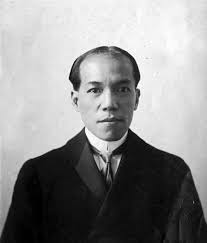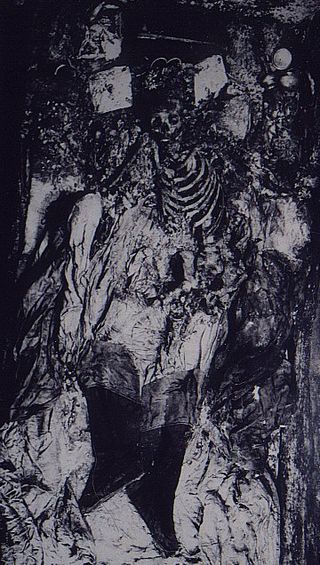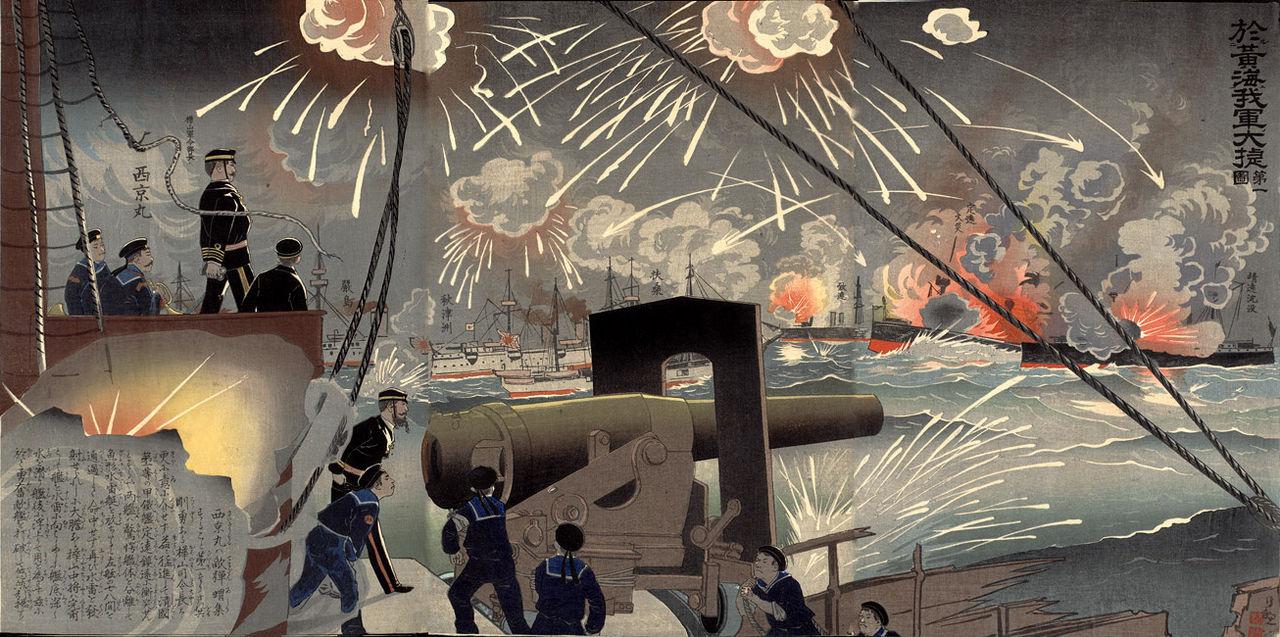Chinese Historiography
By Alex Plymale
Chinese historiography contains a longer continuous tradition than any other on Earth, stretching back to ancient times. (Teng 131) The length of this tradition, and the long standing belief by Chinese academics that Chinese historiography is the paramount form of the discipline make it valuable counterpoint to European historiography. The methodological canon in which Chinese historiography has been practiced changed significantly in the 20th century. The Qing, Republican, and modern Marxist periods have had profound impacts on how Chinese historians have organized and interpreted their history. The mixture of Chinese Marxism with later western concepts such as postmodernism and materialism marks the most significant evolution in methodology. The shift from over a thousand years of dynastic rule to 200 years of rapid governmental change, as well as the embrace of modernism, has had a significant effect on how the Chinese interpret their imperial past.
Dynastic Change
Significant changes occurred in Chinese historiography beginning in the period of transition from the Ming to the Qing dynasty in the 17th century. As the Qing was founded by Manchus who had invaded China from the north, Qing emperors were not concerned with upholding Ming dynastic historical tradition. They even went so far as to institute anti-intellectual policies which forbade scholars from publishing or studying previous dynastic chronicles. (Teng 133) Thanks to heavy censorship by Qing officials, historians shifted their focus to textual criticisms and supplementary writings relating to established well-known histories.
Translation of foreign documents also began to occur at an unprecedented rate during the Qing. Documents from Persia provided Chinese historians with a much better historical record of Mongolian history, as the Ming emperors had suppressed the history of the Mongol Yuan dynasty, which ruled China for 200 years. (Teng 134) This would be a significant shift, as up to this point Chinese historiography had been very nativist and rarely incorporated outside sources. This can be seen as similar to the reincorporation of classical methodology within European historiography during the Renaissance.
The Chinese Republic and Professionalization
The establishment of the Chinese Republic in 1912 and the transition into a post-dynastic China would yield more significant changes in Chinese historiography. No longer was historiography tethered to the will of a dynasty, spurring a period of professionalization. Chinese historiography had always prided itself in quantitative professionalism, but the Republican period provided historians with their first exposure to western intellectual traditions, as well as scientific archaeology. It is important to note that their idea of professionalization was different than the Ranke-style professionalization of the west.
In Chinese texts, allusions to mythic histories combined with quantitative research was not seen as anachronistic as China had yet to experience a large scale rejection of folk history and religion as Europe had during the enlightenment. Even under Marxism. In China, while formally rejecting organized religion, mythic histories are still written about despite little belief in their accuracy. Instead, they manifest as tools helping to trumpet China’s glorious history, which justifies its present.
Liang Qichao and Modern Chinese Historiography

Historian Liang Qiachao was a significant historian of this period, credited with helping modernize Chinese historical writings. Liang noted the four most significant problems with the classical canon of Chinese historiography as follows:
“The Historians only know the imperial court and neglect the whole country; They only know individuals and neglect the mass of the people; They only know the past and neglect the present; and they only know facts and neglect ideas.” (Teng 136)
Liang’s criticisms are notable, as these critiques and the resulting changes in methodology would be important precursors to Marxist methodology post-1949. Scientific archaeology, which began to gain traction around this time, also added to the revolution of methodology occurring in Chinese historiography. Both the emerging Marxists and traditionalist historians valued archaeology as a way of legitimizing China’s present through its glorified past, often using archaeological findings to corroborate mythic and semi-mythic historical accounts while also using found artifacts to better illuminate the timeline of Chinese civilization. (Chang 167) It is tempting to believe that the Cultural Revolution would set forth an entirely new Chinese historical methodology. However, it is the changes during the Republican period that would be pivotal in setting the foundation for many of the changes post-1949.
Morality and Narrative
When discussing the transition of Chinese historiography toward Marxism, it is important to note the emphasis on morality and lessons within traditional Chinese historiography. The histories often chart a chronicling of facts, with points of clarification and lessons imparted by the writer. In this way the authors were not announcing their presence in much the same way as western historians but were less afraid to cast judgement on their subjects. (Chang 157) This Confucian foundation for Chinese history makes it a strong tradition of both quantitative chronicling and narrative history. Because of this, certain theorists like Hayden White would be influential on Chinese historians. White’s work on narrative in history would be widely cited and debated in modern Chinese historiography. The way Marxist Chinese historiography views narrative is decidedly anti-objectivist, in that it rejects the focus of many Chinese classical historians on powerful individuals. (Dirlik 477) Marxist historiography presents history from within a grand narrative of large groups of people cycling through various stages of organizational development before ultimately arriving naturally at a socialist modern nation in which the common people are in control. (Rockmore 489-491)
The Rise of Marxist State Ideology
Marxist state ideology has forced historians to switch their focus onto the common citizen and use class struggle as an essential lens in which to organize history into cyclical periods and explain essential events in Chinese history. (Dirlik 465) Historians since 1949 have been compelled to focus on peasant rebellions and cast imperial feudal lords as enemies of modernity and the people, a fundamental shift from and denouncement of Confucian ideology. The shift to Marxism has been especially significant as it has changed the focus of Chinese historiography entirely from over 1000 years of precedent. Gone are the mythic histories and dynastic chronicles focusing on quantitative fact-keeping and telling the stories of important and powerful figures. Instead, a new era of personal histories and anti-colonial histories arose in conjunction with the examination and highlighting of class struggle and cyclical social change as the main organizing principle in Chinese history (in lieu of the usual dynastic ordering of classical historians). (Teng 133-139)
Finally, state Marxism would be nuanced and challenged more freely in post-industrial China. The adoption of quasi-capitalist economics in China has led to the intergration of western postmodernism into the Marxist model of historiography established in the 1960s.
The Cultural Revolution and China’s New Heroes

The idea of “feudalism” is seen repeatedly referenced during the Cultural Revolution, particularly by the young Marxist historians who had grown up in communist China. To these new Marxist intellectuals, the Chinese idea of feudalism went beyond how we view the concept in the West. Feudalism became a catch-all critique of the highly bureaucratic structure of imperial China and the evils committed by the aristocratic elites against the hard-working Chinese peasantry, who are largely ignored in classical Chinese histories. (Dirlik 476) Marxist historians were able to use the embrace of scientific archaeology to bolster their knowledge of the lives of the common person in past centuries, using these findings to lift up China’s glorious past in line with official party beliefs, while also celebrating the proletariat whom they viewed as the true legacy of Chinese greatness. (Chang 167)
This modification reveals that Marxism, like any ideology, is malleable, and able to fit the culture into which it is infused. Western Marxist ideas are often seen as the purely western European and soviet versions, but as we see it is inevitable that the culture of the nation will affect how Marxist tenants are shaped to conform to the way a nation wants to view their past, present, and future. Unlike the soviet Marxism we are familiar with, which views Russia’s past as a period of backwardness which was broken by the implementation of Marxism, Chinese Marxism still views its past as glorious, but that the wrong people are given credit for its success.
It is also important to note for Westerners studying Chinese historiography the differences in population and geography of the region. China’s historical populations significantly dwarfed that of Europe, which meant that peasant rebellions and imperial wars often had death tolls in the millions. The Qing conquest of the Ming in the early 1800s had an estimated death toll of 25 million, while the Taiping rebellion 20 million. Those are only 2 of several conflicts that surpassed the million casualty mark in Chinese history. The gigantic proletariat in China who have often sacrificed significantly during conflicts combined with the importance of societal homogony vs individualism meant that Marxism was an ideology that fit well into Chinese intellectualism during the revolution as it validated the sacrifices of millions of unnamed Chinese who had sacrificed so much for the will of the aristocracy.
Postcolonialism and China’s Past
Postcolonialism was another pivotal subject amongst the new school of Marxist historians. The question of how to view the China’s 19th century, wherein foreign powers asserted their will over the Qing, is still being debated today. During the Cultural Revolution, this topic was one of intense debate between the new school of revisionist Marxist historians and the older generation of historicists, many of whom were educated in the early communist or republican periods. (Li 351) The Marxists drew upon post-colonialist historians like Edward Said in their criticism of colonialism and its links to capitalistic oppression. (Li 352) The historicists viewed the colonial history of China with a similar disdain but saw it as an inevitable challenge that allowed to China to shuck the yoke of archaic dynastic rule. (Li 351-353) These opposing views illuminate key facets of what dominated the face of Chinese historiography during this period. The young Marxists accused more traditional historicists of being pro-oppression and pro-colonialism. The historicists acknowledged the importance of class struggle in ancient Chinese history but rejected that it was the driving force for all social change as was asserted by the young Marxists. The historicists instead argued that often social change was the catalyst for peasant revolts rather than the outcome and that contributions by imperial figures should not be ignored due to their complicity in an oppressive feudalist system.

China has undergone not only large amounts of political turmoil in the past two centuries but has also been radically changed by influxes of outside influence. For a nation which has often been very insular in its academic tradition, the beginnings of contact with other intellectual traditions during the Qing dynasty have had a massive impact. The British incursions during the Qing period, and the anti-intellectual reforms of the Qing emperors during that time forced academics to change their stance on the incorporation of outside materials in their methodology and work. (Teng 133) The proliferation of western academia into Chinese historiography would only be increased in the 20th century as the country underwent large transitions into not a state Marxism influenced by modernization, industrialization, and globalism. (Li 348)
Modern China in the World
How the ideas of modernization, materialist history, and China’s foray into globalist quasi-capitalism fit into both the larger narrative of Chinese history, as well as the Marxist intellectual establishment, have become the most pressing issues within modern Chinese historiography. Beginning in the 1980s, Chinese historians have been afforded more freedom in incorporating western ideas such as post-modernism and levying critiques of Marxism. (Li 346) This is not to say that Chinese academia is free from censorship, as any critiques of official state ideology must be posited as support for Marxism and a denouncement of ideologies deemed as incompatible, such as libertarianism, objectivism, and western neo-liberalism.
The young firebrand historians of the Cultural Revolution now find themselves as the conservative old guard in opposition to the pluralistic approaches of modern historians, whose methodology draws from a wide range of sources now more accessible than ever thanks to globalism. The most common narrative in Chinese historiography is one of three waves of industrialization in the world, the first beginning in Europe in the 19th century and spreading through colonialism to contacted nations such as China, who are part of the second wave in the 20th century. The third wave is occurring now, as developing nations continue to modernize thanks to global capitalism. (Li 348-350)
The participation in global markets by modern China is something that, rather than a betrayal of Marxist values, is seen as a pragmatic adaptation in order to keep up with the demands of the modern world and preventing it from making the same mistakes as the antiquated Qing. These changes are positively attributed to the Marxist revolution as an official example of the success that bringing the government into the control of the people has achieved. In Marxist ideology, the cycling of people through various stages of development and organization is critical. In the reorganization of historical periods that have occurred thanks to Marxist historiography, the official narrative in China is that the nation has at last reached the final iteration of the cycling wherein centuries of class struggle have resulted in a new era of control for the common person, and the toppling of oppressive and outdated monarchism and religious influence. (Li 350) The success of modern China in its rapid industrialization, and its success in the world economy due to its partial embrace of capitalism are used to bolster the viewpoint that the most ideal state has been achieved. Further, as the quality of life rises in China, the government is more able to use this success to validate the Marxist theory of historical change.
The Future of Chinese History
It is difficult to overstate the importance of the changes that have occurred historically in China over the past two centuries and their subsequent effect on the methods of historiography of China. For a nation whose insular and rich intellectual traditions thrived for thousands of years before undergoing rapid changes, it is a monumental shift in the world’s oldest continuous intellectual tradition. The way in which traditional ideas of Chinese identity and its ancient past mix with state-dictated Marxism, and the influx of new foreign academic ideas, has created a complex new landscape. Chinese historians have always prided themselves on the accuracy and fairness of their methods, so the pressure to do research in this manner and not invalidate state views is one that every historian in modern China must grapple with. Incidents such as the Tiananmen Square massacre have spurred grave concerns over the official positions of the state which casts itself as one who endorses and glorifies class struggle of common people over their government. These incidents of hypocrisy, as well as the continued censorship of academia, challenge Chinese historians today to be creative in how they critique and shift the practice of a Chinese historiography that rests at a pivotal crossroad.
While outside influence is present, the Chinese canon continues to thrive on its own, equaling the breadth and nuance of any European authorship. The way in which ideas have manifested within Chinese historiography is extremely useful to study for western historiographers, who tend to view outside paradigms of historiography in the binary form of pre-colonial historicism, which is rarely studied, and the later “modern” or Europeanized academia that arose after colonialism. Chinese historiography is still its own tradition and studying how their periods of change correspond to the western canon can illuminate how different social and cultural factors dictate how ideas are both viewed and incorporated. This does a lot in the way of showing the arbitrary nature of how historical methods are accepted and formed. It also gives lie to the perception of many Western historians that the western methodology is not only the paramount way of studying history, but also a natural progression of ideas that any human society would logically go through rather than changes dictated by shifting cultural paradigms, and societal factors.
Bibliography
Chang, K. C. “Archaeology and Chinese Historiography.” World Archaeology 13, no. 2 (1981): 156–69.
Dirlik, Arif. “Social Formations in Representations of the Past: The Case of ‘Feudalism’ in Twentieth-Century Chinese Historiography.” Review (Fernand Braudel Center) 19, no. 3 (1996): 227–67.
“The Problem of Class Viewpoint versus Historicism in Chinese Historiography.” Modern China 3, no. 4 (1977): 465–88.
Feuerwerker, Albert. “China’s Modern Economic History in Communist Chinese Historiography.” The China Quarterly, no. 22 (1965): 31–61.
LI, HUAIYIN. “FROM REVOLUTION TO MODERNIZATION: THE PARADIGMATIC TRANSITION IN CHINESE HISTORIOGRAPHY IN THE REFORM ERA.” History and Theory 49, no. 3 (2010): 336–60.
Teng, S. Y. “Chinese Historiography in the Last Fifty Years.” The Far Eastern Quarterly 8, no. 2 (1949): 131–56.